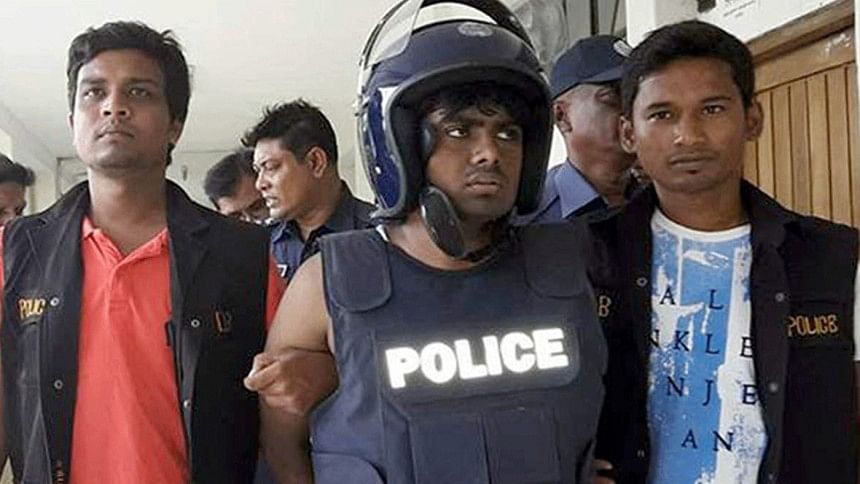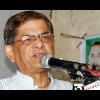Opinion: Two ‘gunfight’ deaths, many questions

Two recent deaths in so-called "crossfires" have raised a lot of questions in the public sphere. These deaths have also put the role of the police and the whole criminal system on the dock.
The first instance is the death in an 'encounter' of a teen militant, Golam Faizullah Fahim. He was caught red-handed during a machete attack on a Hindu teacher. One day after the police took him on a ten-day remand, he was dead.
Even the most gullible person will find it hard to believe what the police are claiming – that he had told the cops that his co-militants may meet at dawn in a remote field in Madaripur. So, the police took him there. And Lo and Behold!! The militants were there all prepared for a gunfight! Why the militants should meet early in the morning and not in the cover of the night and why in an open field and not in a house or hideout is logical makes no sense to us.
The rest of the story is the same. The young, Fahim, died in the ensuing "gunfight". Only that Fahim was found handcuffed in his death and that as some newspapers suggest he seemed to be shot at point black range with a pistol and the bullet pierced his body. Some villagers said they have not heard any gunfight.
Police claimed a policeman also received bullet injury in his leg. A Dhaka Tribune reporter met the cop and found no such injury. The story obviously has a lot of holes and is oozing all over.
In the second story, another militant accused in blogger Avijit murder was killed in a "gunfight" today. The full story is yet to emerge, but it is not expected to differ significantly from the previous 456 such "crossfire", "encounter" and "gunfight" deaths in three years. Yes, 456! Twenty-two in the last 18 days alone!
This shows there is something fundamentally wrong in our criminal and justice system. We have no sympathy for the militants and we reiterate that they be firmly dealt with. They are trying to knock out the flesh from the very fabric of our society. They cannot be allowed to win at any stake. But the fundamental tenet of justice -- a person is not guilty until proven guilty -- cannot be ignored. A suspect is a suspect and any civilized society has to try them with fairness.
Just instant meting out of "justice" through "crossfires" is bound to give birth to problems. Today a confirmed criminal is killed, tomorrow a suspect is mowed down, then comes someone thought to be a criminal and then an innocent man.
Many societies are tackling the militant problem today but not in our way. The West especially has been successful to the extent that it can be termed so. They did not have to send the militants to "crossfires". Their criminal and justice system is such that the militants are tried and that the militants are closely watched once out of the jail. Their political powers never utter any statements that may qualify the militants' atrocities.
Here, we have not made any reforms to the system. We have not produced expert prosecutors and investigators. It is often found that militants get bail as the investigators and prosecutors fail to produce enough prove for the court to hold them down.
Our political leaders often make statements that may seem to be justifying the militants' work especially when it is against people who write controversial things on religion. When in response to a killing of a blogger a minister says that the deceased's web site and Facebook page have to be examined does not it amount to indirect justification of the killing?
But a society cannot continue on such brute, arbitrary and whimsical dispensation of "justice" by "crossfires".

 For all latest news, follow The Daily Star's Google News channel.
For all latest news, follow The Daily Star's Google News channel. 






Comments